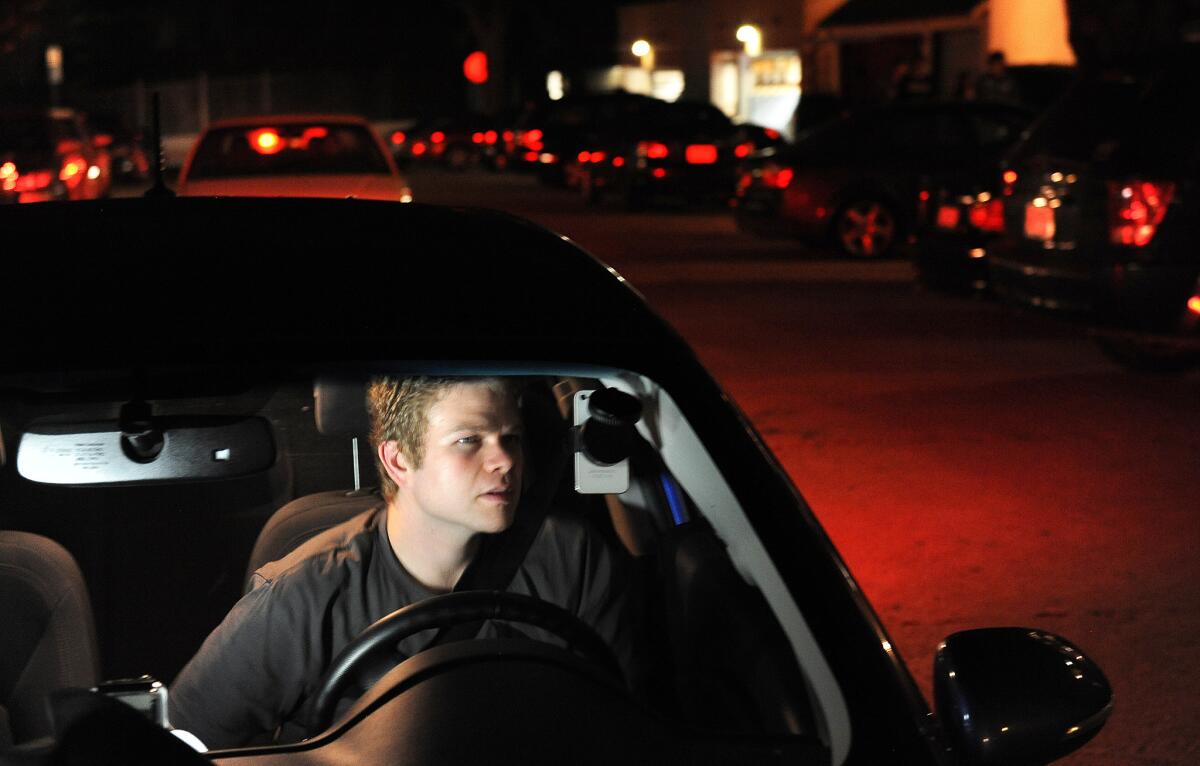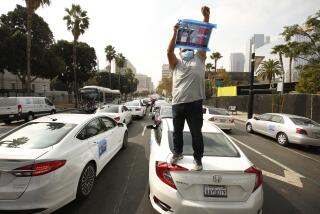Battle over ridesharing insurance heats up

Insurance company backers of a bill to tighten requirements for ridesharing companies are taking nothing for granted in a battle with such high-tech companies as Uber and Lyft.
The insurers have put together an unusual coalition with consumer advocates and even their traditional rivals, personal injury lawyers, and have invited television news crews to an expected emotional event outside the state Capitol on Wednesday morning.
Uber and Lyft, meanwhile, have hired a half-dozen of Sacramento’s most influential lobbying firms to persuade legislators against heavily regulating their new, fast-growing industry.
Center stage on Wednesday will be the parents of 6-year-old Sofia Liu, who was killed by the driver of an Uber-affiliated car in a San Francisco crosswalk last New Year’s Eve. The family is suing the driver and San Francisco-based Uber Technologies Inc.
At issue is AB 2293 by Assemblywoman Susan Bonilla (D-Concord). The legislation would require state-licensed ridesharing companies to provide commercial insurance coverage or its equivalent any time they are using a smartphone application that connects drivers and their personal cars with passengers.
The bill has already passed two Assembly committees, the Assembly floor and a Senate committee without a dissenting vote. A hearing in the Senate Insurance Committee is set for 1:30 p.m. Wednesday in the state Capitol.
Insurers and their allies contend that ridesharing companies should provide commercial insurance as primary coverage if the driver’s personal insurance policy doesn’t allow paying passengers. Such coverage should be in force any time a smartphone app is turned on, even when there is no passenger in the car.
The Bonilla bill, according to an analysis by Senate committee staff, would protect “the driver, passengers, pedestrians and third parties from potential gaps in insurance where a driver may find himself without any coverage and an injured third party may be left without coverage to pay for medical bills or property damage.”
Ridesharing companies “should be on the hook” any time a driver is waiting for passengers, said Armand Feliciano, a lobbyist for the Assn. of California Insurance Companies.
Uber said it supports the “App On to App Off” approach but argues that less coverage is needed when a driver is waiting for passengers but has not yet indicated that he would pick them up.
Proposed amendments to the Bonilla bill “would add unnecessary state insurance requirements to the bill over and above what is currently required for any car on the road ... when no rider is in the car and no commercial activity is taking place,” Uber said in a statement.
Twitter: @MarcLifsher
More to Read
Inside the business of entertainment
The Wide Shot brings you news, analysis and insights on everything from streaming wars to production — and what it all means for the future.
You may occasionally receive promotional content from the Los Angeles Times.











